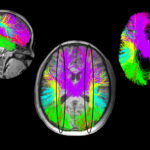Language barriers linked with medical errors in hospitalized children

A new study finds that hospitalized children whose families have limited comfort with English are twice as likely to experience medical errors. The study, which did not include patient data from Boston Children’s Hospital, highlights the need for improving communication between these families and the health care providers they interact with to ensure the safety of all children. Their findings are published today in JAMA Pediatrics.

“This study highlights how disadvantaged and vulnerable families are at risk and that we have an opportunity in health care to bridge that divide,” says lead author Alisa Khan, MD, MPH, a pediatric hospitalist and health services researcher at Boston Children’s. “It suggests that each point of contact can be an opportunity for families to speak up and prevent an error and participate in care.”
Nearly double the number of reported adverse events
Khan and her colleagues conducted the study to see if families who have language-based communication challenges with their child’s care team would have a higher likelihood of having safety events in the hospital. “We did indeed find that association, both in overall adverse events and in those considered preventable,” she says.
The study included Chinese-, Arabic-, English-, and Spanish-speaking parents of 1,666 hospitalized children aged 17 and younger at seven North American hospitals. A total of 147 parents, or about 8.9 percent, expressed limited comfort with English.
Adverse events were reported in 26 of those 147 families, or 17.7 percent. In comparison, 9.6 percent of families comfortable with English reported medical errors. Examples included allergic reactions from antibiotics despite a known allergy, or incorrect dosing of a medication. The study specifically included family-reported adverse events along with provider-reported events, events obtained through review of patient medical records, and hospital incident reports.
“The reasons behind this difference are probably multifactorial, but likely a combination of less thorough, or fewer communication touch points with providers, or not getting interpreters when needed,” Khan says. “Cultural norms around communication, as well as bias, immigration status, systemic racism, and other factors may also play into these findings.”
Putting equity into action: Tips for providers
In their paper, the team highlights several strategies to improve communication:
1. Accurately and consistently identify and document language assistance needs.
2. Use certified interpreters, and use them with every communication within the hospital.
3. If in-person interpreter services are limited, use technology like a telephone or tablet to connect with families via virtual and telephonic interpreter services.
4. Use electronic medical records triggers to obtain interpreter services for error-prone procedures.
5. Frequently train staff how to request hospital interpreter services.
6. Train staff to encourage families with limited comfort with English to speak up about safety concerns.
7. Invest in staff trainings regarding anti-racism and bias.
I-PASS dedicated to improving communication
This study collected data in conjunction with the Patient and Family-Centered I-PASS Study, a study of an intervention to improve communication between health care providers and families. Results of that study published in 2018 showed that the rate of preventable adverse events dropped by nearly 40 percent in the three months after implementing an intervention to improve engagement in family-centered rounds.
Because of the dramatic findings in its 2018 study, the Patient and Family-Centered I-PASS team at Boston Children’s is now sharing its program with 21 additional hospitals in North America. Its mission remains the same: to study provider- and family-reported adverse events and identify ways to improve communication and safety.
“From an equity standpoint, these disparities are not acceptable,” says Khan. “Our research suggests we as health care providers need to pay more attention to families with limited English proficiency to ensure there are safeguards in place.”
Read more about Boston Children’s addressing racial inequities
Related Posts :
-

Parsing the promise of inosine for neurogenic bladder
Spinal cord damage — whether from traumatic injury or conditions such as spina bifida — can have a profound impact on bladder ...
-

Unveiling the hidden impact of moyamoya disease: Brain injury without symptoms
Moyamoya disease — a rare, progressive condition that narrows the brain’s blood vessels — leads to an increased risk of stroke ...
-

Forecasting the future for childhood cancer survivors
Children are much more likely to survive cancer today than 50 years ago. Unfortunately, as adults, many of them develop cardiovascular ...
-

Genomic sequencing transforms a life: Asa’s story
Asa Cibelli feels like he’s been reborn. The straight-A middle schooler plays basketball and football, does jiu jitsu, is ...





